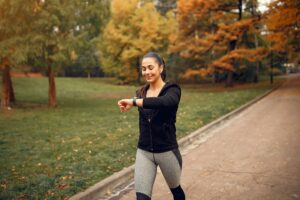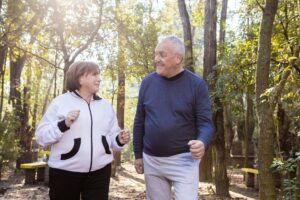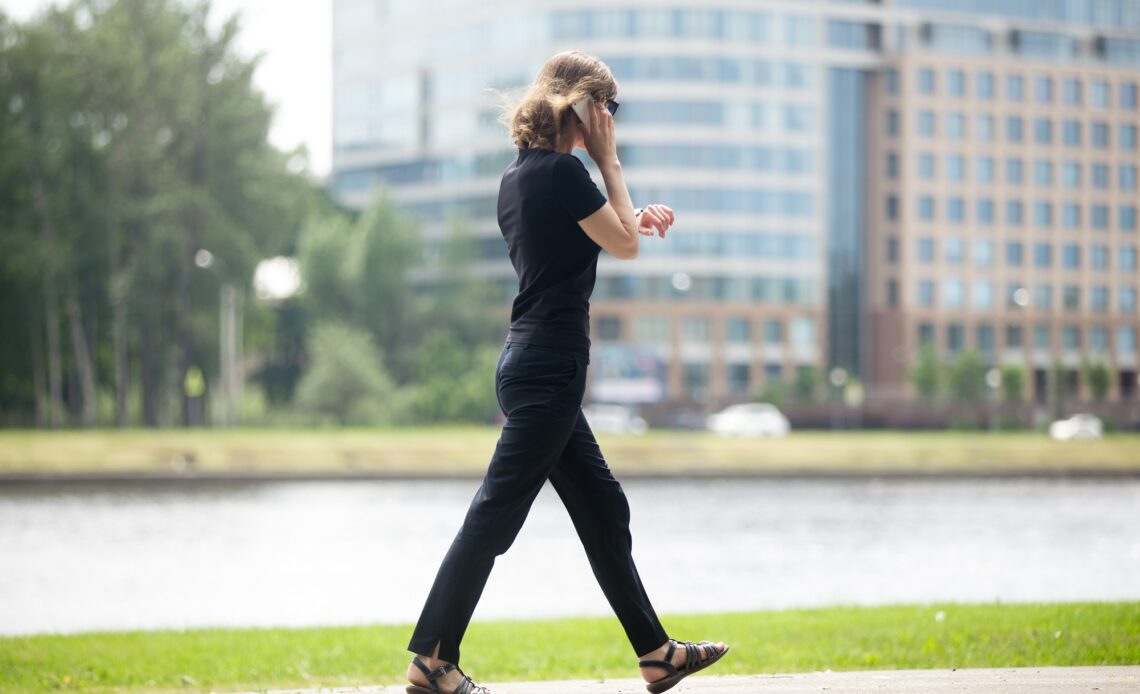Understanding the Benefits of Walking
Walking is a simple yet powerful exercise that boosts cognitive functions like memory and attention by increasing blood flow and stimulating new brain cell growth, especially in the hippocampus. It supports brain plasticity, reducing the risk of cognitive decline, and encourages creativity and problem-solving through its rhythmic, meditative nature.
In addition to cognitive benefits, walking improves mental well-being by triggering the release of endorphins, the body’s natural mood enhancers. It helps regulate neurotransmitters such as serotonin and dopamine, which are important for managing depression and anxiety. Walking outdoors also provides exposure to natural light, which supports circadian rhythm regulation and improves sleep quality, further contributing to a better mood and overall mental health.
Incorporating regular walks into your routine is an effective way to promote both brain health and emotional balance.
Walking’s Impact on Metabolism: How It Works
Walking is an effective way to boost your metabolism, which is essential for maintaining a healthy weight and energy levels. As a low-impact form of exercise, walking increases your heart rate and breathing, leading to more calories burned.
One of the key metabolic benefits of walking is its ability to improve insulin sensitivity. By engaging in regular walks, your muscles become more receptive to insulin, which helps regulate blood sugar levels. This is particularly important in preventing and managing conditions like type 2 diabetes. Walking can be a pivotal part of a lifestyle change that promotes better glucose metabolism.
Moreover, walking aids in muscle preservation and can even encourage muscle growth in the lower body. Muscle tissue naturally burns more calories than fat, so increasing muscle mass through walking can further boost your metabolism.

Establishing a Walking Routine: Tips for Success
Start by setting realistic goals that align with your current fitness level. For beginners, aim for at least 30 minutes of walking five days a week. As you build endurance, gradually increase the duration and intensity of your walks.
To stay motivated, consider tracking your progress using a pedometer or a fitness app. Additionally, setting specific targets, such as a certain number of steps each day, can help maintain your focus and motivation.
Incorporate variety into your walking routine to keep it interesting. Explore different routes, walk in new neighborhoods, or try walking in nature to enjoy different scenery. Don’t forget to wear comfortable shoes and protective accessories like women’s bifocal sunglasses, which not only shield your eyes from the sun but also make it easier to read your step tracker or phone while walking. This not only makes your walks more enjoyable but also enhances their health benefits.
The Role of Walking in Mental Clarity and Focus
Walking has a remarkable ability to clear the mind and enhance focus. The repetitive nature of walking can serve as a form of moving meditation, allowing you to detach from stressors and gain a fresh perspective. Furthermore, walking improves blood circulation, delivering more oxygen and nutrients to the brain.
Incorporating mindful walking into your practice can deepen these benefits. Focus on your breathing, the sensation of your feet touching the ground, and the sounds around you. This mindfulness practice can reduce mental clutter and improve your ability to concentrate on important tasks. By making walking a regular part of your routine, you enhance both mental clarity and overall cognitive performance.
Incorporating Walking into Your Daily Life
Integrating walking into your daily routine doesn’t have to be challenging. Begin by looking for opportunities to walk more during your day. Small changes like these can significantly increase your daily step count.
Consider walking meetings as an alternative to traditional sit-down discussions. Additionally, walking during phone calls or breaks can help you stay active throughout the day without disrupting your schedule.
Set reminders or schedule specific times for walks to ensure they become a regular part of your life. By prioritizing walking, you’ll soon find it becomes a natural and enjoyable part of your daily routine, providing lasting health benefits.
The Connection Between Walking and Longevity
Research consistently shows a strong link between walking and increased longevity. Regular walking is associated with a reduced risk of chronic diseases such as heart disease, stroke, and certain cancers. Walking also contributes to better physical mobility and balance. It helps maintain muscle strength and flexibility, reducing the risk of falls and injuries common in older age.
Moreover, the mental health benefits of walking contribute to a higher quality of life, promoting emotional well-being and reducing the risk of mood disorders. By embracing walking as a vital part of your lifestyle, you not only add years to your life but also enhance the quality of those years, allowing you to enjoy them to the fullest.

Conclusion
Walking is more than just a form of exercise; it’s a comprehensive approach to enhancing your physical, mental, and emotional health. By incorporating regular walks into your routine, you can improve brain health, boost your mood, increase your metabolism, and foster social connections. Embrace the power of walking today and take the first step towards a healthier, more balanced lifestyle. Walking can be the catalyst for positive change.


